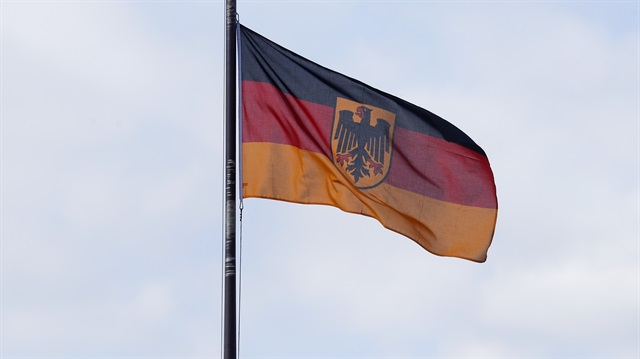

File photo
Merkel’s government confirms its talks with FETÖ-affiliated groups, but declines to give any detail about their content
The German government has confirmed that its intelligence organizations were primarily responsible for contacts with groups affiliated with terrorist FETÖ, but declined to give any detail about ongoing talks with the group, arguing that it could harm activities of its intelligence organizations.
The U.S.-based Fetullah Gulen’s shadowy group FETÖ is classified as a terrorist organization by Turkey, for carrying a long secretive campaign to infiltrate state instutitons and orchestrating the foiled coup attempt in 2016, which left 251 people martyred and nearly 2,200 injured.
But in Germany, which is home to more than 3 million Turkish immigrants, the group continues their activities without any hindrance through associations, schools and media organizations.
In its reply to a parliamentary question from the opposition Left Party, which was made public on Monday, the German government has said it could not rule out that “the members of Gulen movement were involved in the coup attempt”, but also argued that so far it did not receive sound evidence about FETÖ suspects living in Germany.
Secret dealings
Asked “if the German federal government has cooperation with Gulen affiliated persons, instutitons, associations and media organizations”, and “whether it has such plans for future” which would necessitate federal funding, Chancellor Angela Merkel’s government declined to give any information to the parliament.
“The subject matter of this question involves information which particularly affects the functional capability of the intelligence ogranizations and therefore we cannot provide information that can be available to the public,” the government said in its written reply.
It also argued that the public release of any information related to this question involves big risk of revealing the valuable “intelligence contacts” that should be protected.
Left Party lawmaker Ulla Jelpke slammed the government for hiding information from the parliament about its cooperation with FETÖ-affiliated groups.
“The government views its cooperation with the associations of Gulen sect so explosive that it is refusing to give an answer arguing that doing so would effect the the functional capability of the intelligence ogranizations,” she told Germany’s international broadcaster DW.
“It seems that the government is cooperating with Gulen exclusively through the intelligence services,” she added.
FETÖ network
Germany’s tolerance towards the group, and its reluctance to extradite FETÖ suspects to Turkey, has been a source of tension between the two countries.
Since the 1990s, Gulen’s shadowy group managed to build a large network in Germany, and it claims to have around 70,000 followers in the country.
Around 14,000 people with suspected ties to FETÖ have also arrived the country, after the foiled coup attempt in Turkey, according to local reports.
FETÖ members have tried to avoid public criticism in Germany by focusing on "interfaith dialogue" programs and sticking to “moderate” messages.
But former FETÖ members, who spoke to the German media in recent weeks, stressed that the group has a dual structure, and despite its “democratic” and “moderate” image in public, it has a secretive and strict hierarchy controlled by its ideological leaders.
#FETO
#Germany







